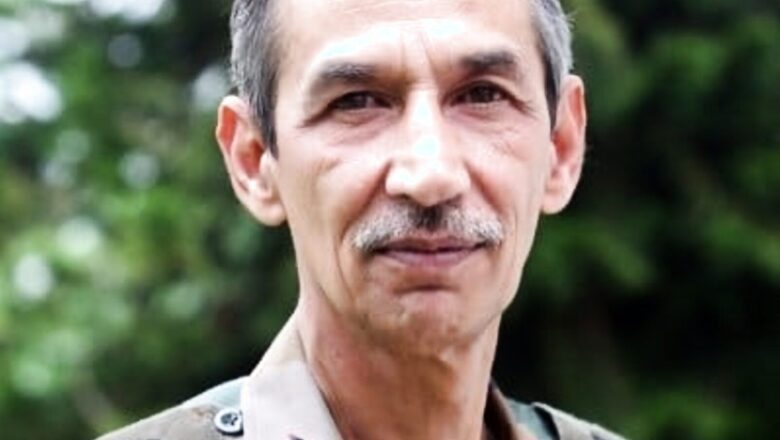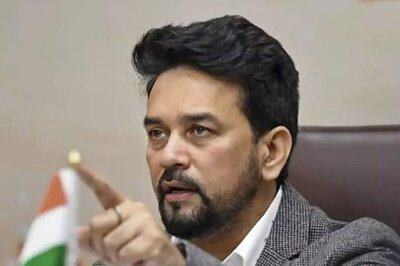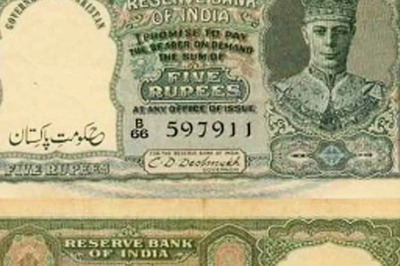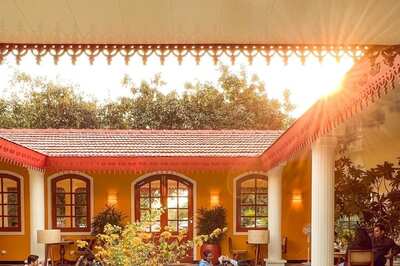
views
The cross-border surgical strikes conducted by the Army in 2016 and the air attack carried out by the Indian Air Force in 2019 at Pakistan’s Balakot had shown India’s strong response to attacks by Pakistan-based terrorist groups, Lt Gen DS Hooda (Retd) told News18 in an interview.
The decorated Army officer had led the surgical strikes across the Line of Control in 2016 as the Northern Army Commander.
The surgical strikes were conducted by the Army in response to the terror attack at its base in Uri in 2016 that had killed 18 soldiers. The Balakot operation was carried out by the IAF in 2019 just days after a terror strike on a CRPF convoy in Pulwama in which 40 personnel were killed.
Asked if India’s retaliation marked a shift in the way the armed forces operated, he said the military’s main task is to tackle the external threat and be prepared to conduct cross-border operations.
“So, I would not classify the 2016 and 2019 strikes as major turning points for the ways that the armed forces operate except that operational readiness to conduct such operations now has to be at a higher level,” he said. “However, Uri and Balakot showed that the government would respond strongly to major terrorist attacks emanating from Pakistan-based terrorist groups. This is a definite policy statement.”
Lt Gen Hooda said there have been some key developments for the armed forces in the last eight years of the Narendra Modi government, the most significant of which was the appointment of the Chief of Defence Staff (CDS) and the raising of the Department of Military Affairs (DMA).
“Reforms in the military were long overdue, particularly in terms of joint capability development and restructuring to bring about greater integration of the three services. The late CDS (Gen Bipin Rawat) had been spearheading these actions,” he said.
Lt Gen Hooda told News18 that there has also been a more focused push towards infrastructure development along the northern borders.
“Inadequate infrastructure was hampering our operational preparedness along the LAC, and while it will still take some time to build roads and tunnels, the momentum is in place,” he added.
He said self-reliance in defence equipment has also been an important thrust area of the government.
“Again, this is not something that can be achieved immediately, but there is a very strong drive to promote indigenisation that is absolutely essential if India is to emerge as a strong military power,” he said.
‘Puzzling that new CDS hasn’t been appointed’
Asked about the key problem areas plaguing the defence and security sector at present, Lt Gen Hooda said it needs to be ensured that the military reform process is not slowed down.
“This process was being led by the late CDS, and it is puzzling that the new CDS has not been appointed after the extremely tragic accident of General Bipin Rawat,” he said, adding that without a Chief of Defence Staff at the helm, the restructuring of the military and joint capability development could suffer.
“Our military modernisation is also not keeping pace with the future challenges that we face, particularly from China,” he said.
The former Army officer said that there is a need to have a serious discussion on how this can be achieved.
“Do we need to reduce the size of the military, what type of capabilities are required for future warfighting, and what are the technologies to be adopted? These are some questions that should be debated,” he said.
‘Tour of Duty would be shift in character of Indian military’
Lt Gen Hooda said much of the focus of the military reforms seems to be centred on reducing the salary and pension burden.
“I agree that this burden is large, but we must also realise that a military is only as good as the men and women who constitute it,” he said. He added that a volunteer and motivated military force has been one of the biggest strengths of India.
“Therefore, ideas like ‘Tour of Duty’, which would be a major shift in the character of the Indian military, should be implemented after the ramifications are thought through,” he said.
‘China should take steps to defuse LAC crisis’
Talking about the ongoing military stand-off with China in eastern Ladakh, Lt Gen Hooda said it is now quite apparent that there won’t be an early resolution of the crisis.
“However, I think there is no option but to remain firm in our stance to restore the status quo ante. This is the only way to bring in stability along the LAC and rebuild confidence between the two militaries,” he said.
He said unless the People’s Liberation Army (PLA) pulls back, mistrust and tension will remain and the overall bilateral ties between both countries will remain adversely impacted.
“Frankly, the ball is in China’s court; they initiated the crisis, and they have to take steps to defuse it,” he said.
Top priorities for government
As per Lt Gen Hooda, the first priority for the government should be the enunciation of a National Security Strategy for India, as the absence of that has prevented a holistic approach to both external and internal security challenges.
“I am not suggesting that India has been unsuccessful in dealing with the challenges, but that there could have been greater coherence if there was a national strategy that served to guide all instruments of the government,” he said. “Second, the regional and geopolitical competition with China is likely to sharpen in the future.”
Lt Gen Hooda said India is already witnessing China’s use of military force for asserting maritime and continental territorial claims.
“India must build up its military capability to ensure that it cannot be coerced by China along the LAC or in the Indian Ocean,” he said. “This will require some deep, long-term thinking by both the political and military leadership.”
Read all the Latest India News here




















Comments
0 comment